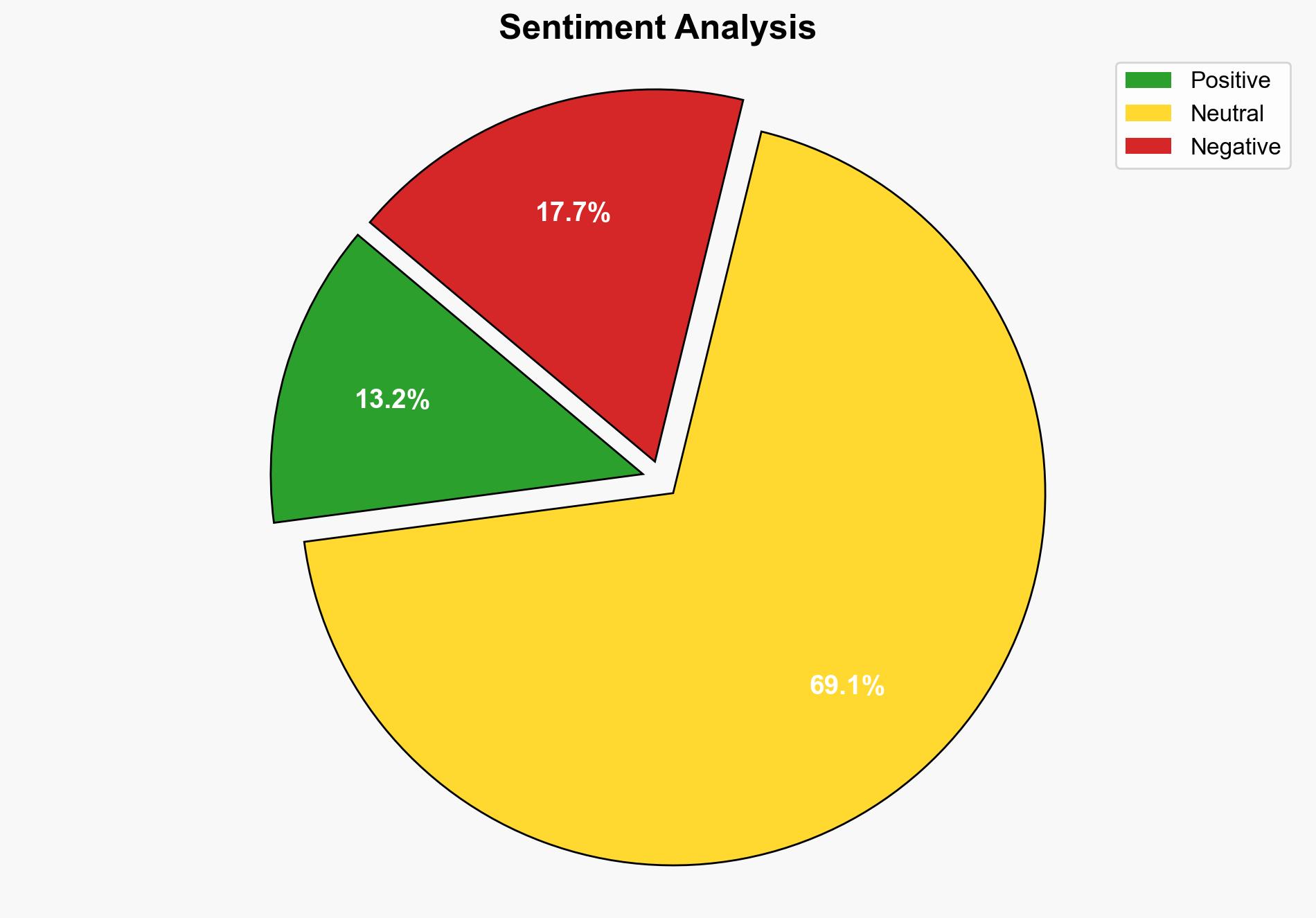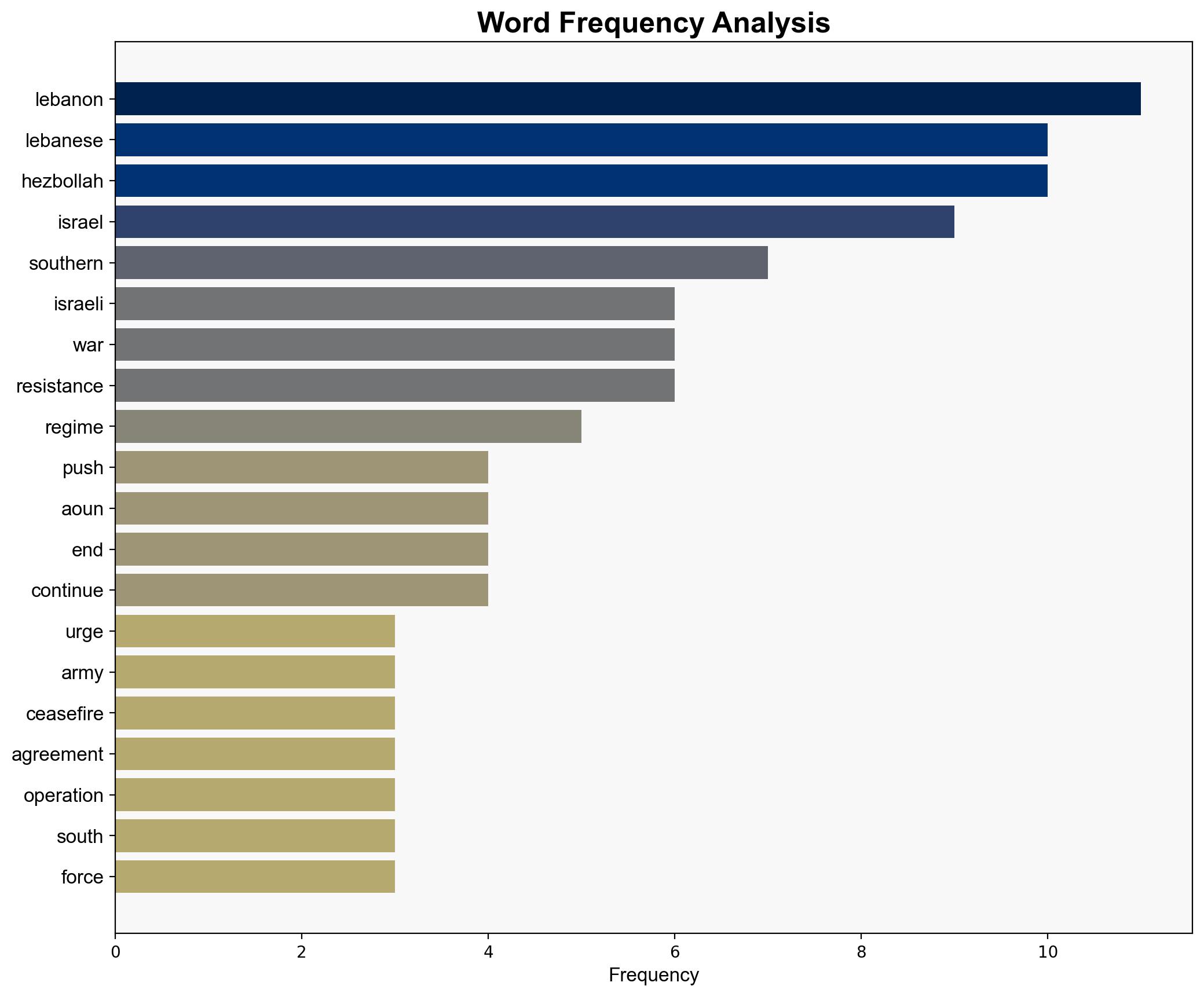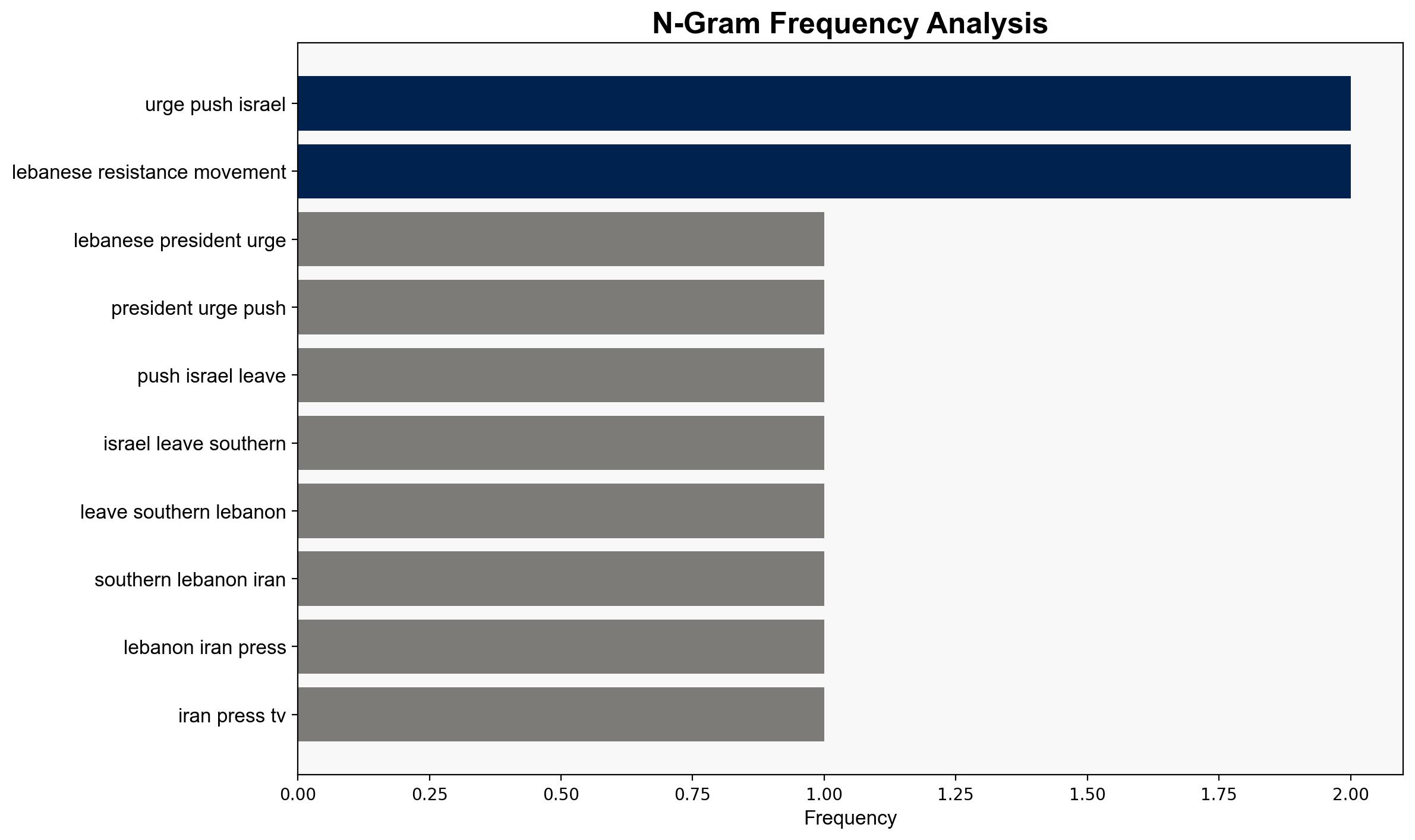Lebanese president urges US to push Israel to leave southern Lebanon – Globalsecurity.org
Published on: 2025-09-08
Intelligence Report: Lebanese president urges US to push Israel to leave southern Lebanon – Globalsecurity.org
1. BLUF (Bottom Line Up Front)
The Lebanese president’s call for US intervention to pressure Israel to withdraw from southern Lebanon reflects ongoing regional tensions and the complex interplay of local and international actors. The most supported hypothesis is that Lebanon seeks to leverage US influence to stabilize its southern border and strengthen its military control, with a moderate confidence level. Recommended action includes diplomatic engagement to facilitate dialogue between Lebanon, Israel, and other stakeholders to prevent further escalation.
2. Competing Hypotheses
1. **Lebanon’s Strategic Stabilization Effort**: Lebanon is seeking US intervention to stabilize its southern border, allowing its army to take control and reduce Hezbollah’s influence, aligning with international resolutions.
2. **Hezbollah’s Tactical Maneuvering**: The call is a strategic maneuver by Hezbollah, using the Lebanese government to pressure Israel indirectly while maintaining its armed presence and political influence in the region.
Structured Analytic Technique: Using ACH 2.0, the first hypothesis is better supported by the Lebanese president’s statements and international resolutions. The second hypothesis is plausible but less supported due to the lack of direct evidence linking Hezbollah’s tactical objectives to the president’s appeal.
3. Key Assumptions and Red Flags
– **Assumptions**: The Lebanese government is unified in its approach to resolving the southern border issue. The US has the willingness and capability to influence Israeli military decisions.
– **Red Flags**: Potential bias in Lebanese media sources, possible underestimation of Hezbollah’s influence, and the assumption that Israel will respond to US pressure.
– **Missing Data**: Detailed US and Israeli government responses to the Lebanese president’s request.
4. Implications and Strategic Risks
– **Geopolitical Risks**: Continued Israeli military presence could escalate tensions, potentially drawing in regional actors and affecting US interests.
– **Economic Risks**: Prolonged conflict may deter investment and economic recovery in Lebanon.
– **Psychological Risks**: Heightened tensions may increase domestic unrest within Lebanon, affecting public morale and government stability.
5. Recommendations and Outlook
- Engage in multilateral diplomacy involving the US, Israel, and Lebanon to address border security and compliance with international resolutions.
- Monitor Hezbollah’s activities and rhetoric for signs of escalation or de-escalation.
- Scenario Projections:
- Best: Successful diplomatic resolution leading to Israeli withdrawal and strengthened Lebanese military presence.
- Worst: Escalation into broader conflict involving regional actors.
- Most Likely: Continued stalemate with intermittent skirmishes and diplomatic efforts.
6. Key Individuals and Entities
– Joseph Aoun
– Brad Cooper
– Sayyed Hassan Nasrallah
– Hasan Ezzeddine
7. Thematic Tags
national security threats, regional focus, geopolitical tensions, military strategy




